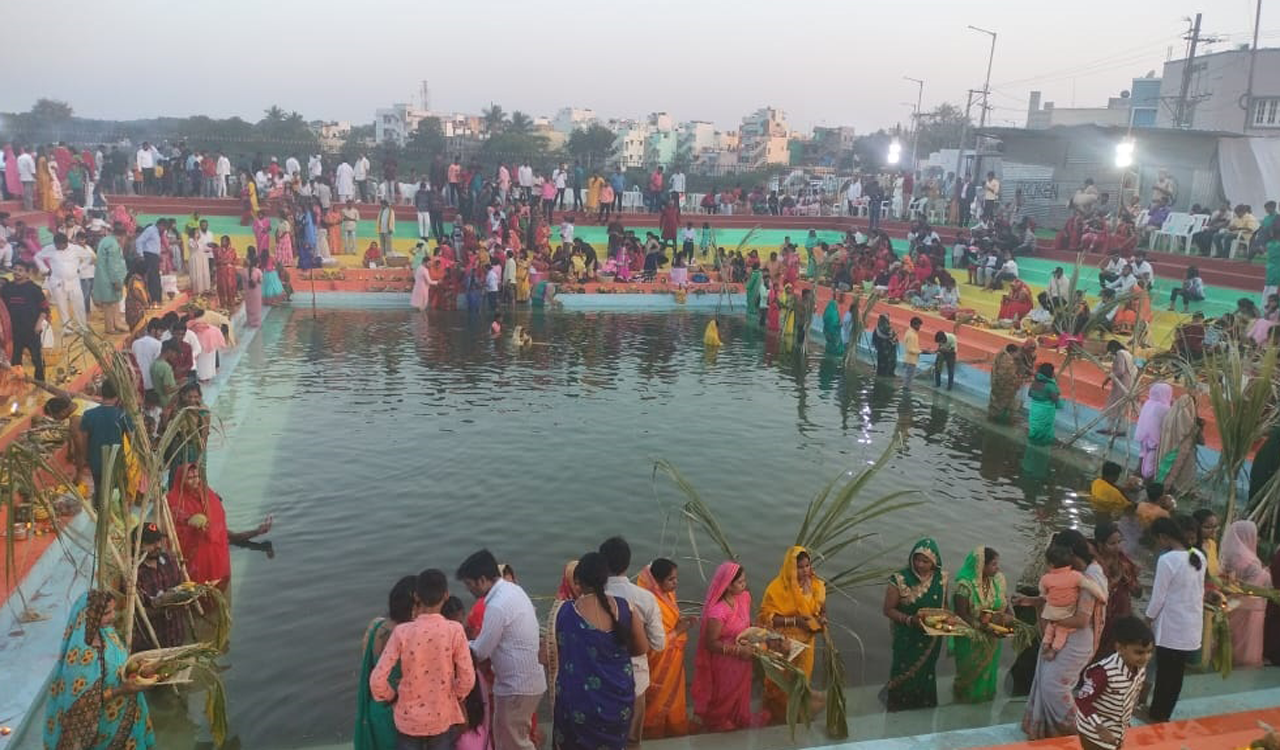Observed six days after Diwali, the four-day festival, dedicated to the Sun God and Chhathi Maiya (Shashti Devi), is scheduled to be celebrated from November 17 to 20 this year, according to the Hindu almanac.
Published Date – 04:28 PM, Fri – 17 November 23

Hyderabad: Post Diwali, the festive fervour continues in Hyderabad, with the local Bihar community eagerly preparing for a vibrant Chhath Puja.
Observed six days after Diwali, the four-day festival, dedicated to the Sun God and Chhathi Maiya (Shashti Devi), is scheduled to be celebrated from November 17 to 20 this year, according to the Hindu almanac.
While Chhath Puja is predominantly celebrated in Bihar, Jharkhand, and specific areas of Uttar Pradesh, the community from these regions residing in Hyderabad actively partake in the festivities annually. The celebration occurs at locations such as Hussain Sagar, Malkam Cheruvu, Alwal, Patancheru, Miyapur, Medchal, and various other ghats and baby ponds across the city.
The festival is celebrated on the banks of a water body to pay obeisance to the Sun God for sustaining life, explains Vikas Singh, Secretary at Bihar Samaj Seva Sangh. “We’ve been living in Hyderabad for several years and celebrating the festival on a grand scale. This time, we are anticipating more than 2,000 people taking part at Tank Bund. The decorations will reflect our indigenous atmosphere,” he adds.
The festival’s first day, Nahaye Khaye, involves cleaning and sanctifying homes with devotees fasting and eat only once in the day. Kharna, the second day, includes a day-long fast, an evening offering of rice pudding to Suryadev, and the initiation of a 36-hour Nirjala fast.
The third and fourth days, “Sandhya Arghya” and “Usha Arghya,” hold significant importance in the festival. On the fourth day of Chhath, devotees throng the ghats of a water body, standing knee-deep in the water to watch the rising sun. After this, they break their fast with the prasad.
Vikas Singh said the initial prayer session or ‘argh’ takes place from 3 pm to 10 pm on Sunday, while the second ‘argh’ occurs from 4 am to 8 am on Monday. During this period, from Saturday’s sunset to Monday’s sunrise, devotees abstain from consuming food and water.
Vikas emphasizes that Chhath Puja is perceived by many as an eco-friendly way of celebrating the elements of Nature and anyone, regardless of gender, can participate in the fast.



